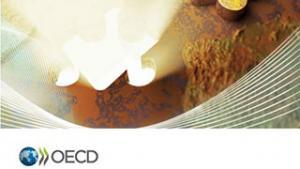 A recent consultant study has concluded that 95% of downstream companies belonging to the Responsible Minerals Initiative (RMI) had responsible sourcing policies that were not aligned with OECD Due Diligence Guidance. If this typical level of engagement is not improved by 2023, the consultants warn that the EU may extend mandatory due diligence obligations downstream.
A recent consultant study has concluded that 95% of downstream companies belonging to the Responsible Minerals Initiative (RMI) had responsible sourcing policies that were not aligned with OECD Due Diligence Guidance. If this typical level of engagement is not improved by 2023, the consultants warn that the EU may extend mandatory due diligence obligations downstream.
The research, by Kumi Consulting, London was carried out independently in September 2017 in the context of the new EU Regulation on due diligence due to come into force in July 2017, with main requirements starting in January 2021. Under the regulation downstream companies with more than 500 employees will be encouraged to register and carry out voluntary measures. Upstream compliance is already mandatory. The regulation will be reviewed for effectiveness, cost and impact in 2023.
Kumi evaluated policies of 314 downstream members of RMI (formerly CFSI) to check reporting against a set of four criteria from the OECD Due Diligence Guidelines including conflict and severe human rights abuses, OECD standards, requirements for suppliers to comply and application to high risk areas outside the DRC.
Results showed “massive weaknesses” in meeting the criteria, especially in relation to geographic application outside central Africa. Since the original US Dodd-Frank Act specified conflict minerals as deriving from the DRC and adjoining countries, most companies are focussed only on avoiding sourcing from that area. However the OECD guidance and the EU Regulation recognise a broader global geographic scope, including other ‘high risk’ areas.
Further, OECD guidance includes more risk factors than simply the sourcing origin, including the need to advise suppliers on its expectations, for example what specific adverse impacts it should not tolerate. This was the second most common reason for failing the study’s evaluation.
The report provides compelling evidence that downstream companies using 3T minerals and gold, especially those in the EU, should reconsider the scope of their existing policies on responsible sourcing, keeping pace with rapidly expanding requirements.
